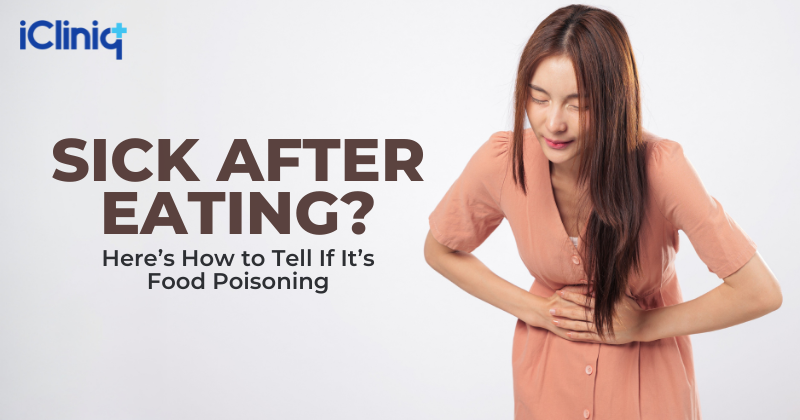Sick After Eating? Here’s How to Tell If It’s Food Poisoning

What Is Food Poisoning?
Food poisoning is very common and happens after the consumption of contaminated food items with harmful bacteria, viruses, and other toxic substances. The contamination of food happens due to inappropriate storage of food, preparation, or the use of certain methods and chemicals while making or packing food.
Signs and Symptoms
The signs and symptoms of foodborne disease can vary from stomach pains, abdominal cramps, vomiting, diarrhea, or loss of appetite. Young children, elderly individuals, or pregnant women are more likely to get ill with food poisoning.
Foods Most Likely to Cause Food Poisoning
Poultry - Having undercooked or raw poultry food such as chicken, duck, or turkey can lead to a high risk of food poisoning. This is mainly because of two types of bacteria present in the gut and feathers of these birds: Campylobacter and Salmonella.
These bacteria contaminate the poultry meat while slaughtering and may survive until cooking. Their uncooked or undercooked meat can lead to food poisoning. Even eggs carry Salmonella, so always try to have pasteurized eggs.
Leafy Greens and Vegetables - Eating raw vegetables and leafy greens can lead to food poisoning. They can be contaminated by E. coli, Salmonella, and Listeria. They also go through cleaning processes where contaminated water can affect the quality of vegetables. To avoid such illnesses, it is better to rinse the vegetables with clean water before refrigerating or cooking them.
Seafood - Fish is one of the most common sources of food poisoning. Storing fish requires the correct temperature, and if the temperature is not maintained, a toxin named histamine is produced by the bacteria in the fish, causing foodborne diseases.
This type of food poisoning is known as scombroid poisoning and leads to nausea, swelling, and wheezing.
Rice - Yes, rice, one of the most common and oldest grain communities in every part of the world, can also lead to food poisoning. Uncooked rice can be impacted by spores of Bacillus cereus and lead to food poisoning.
Dairy - Dairy products are not for everyone. Some are intolerant to them, and unpasteurized dairy commonly leads to food poisoning. Dairy products are full of bacteria; therefore, it is important to pasteurize these products.
Pasteurization helps in killing bacteria and parasites like Brucella, Campylobacter, Cryptosporidium, E. coli, Listeria, and Salmonella. To avoid illness, it is recommended to heat the liquids before consumption.
Final Note
Food poisoning is common, yet you can avoid it with simple and easy ways. Symptoms like cramps, vomiting, nausea, and loss of appetite can indicate foodborne diseases.





